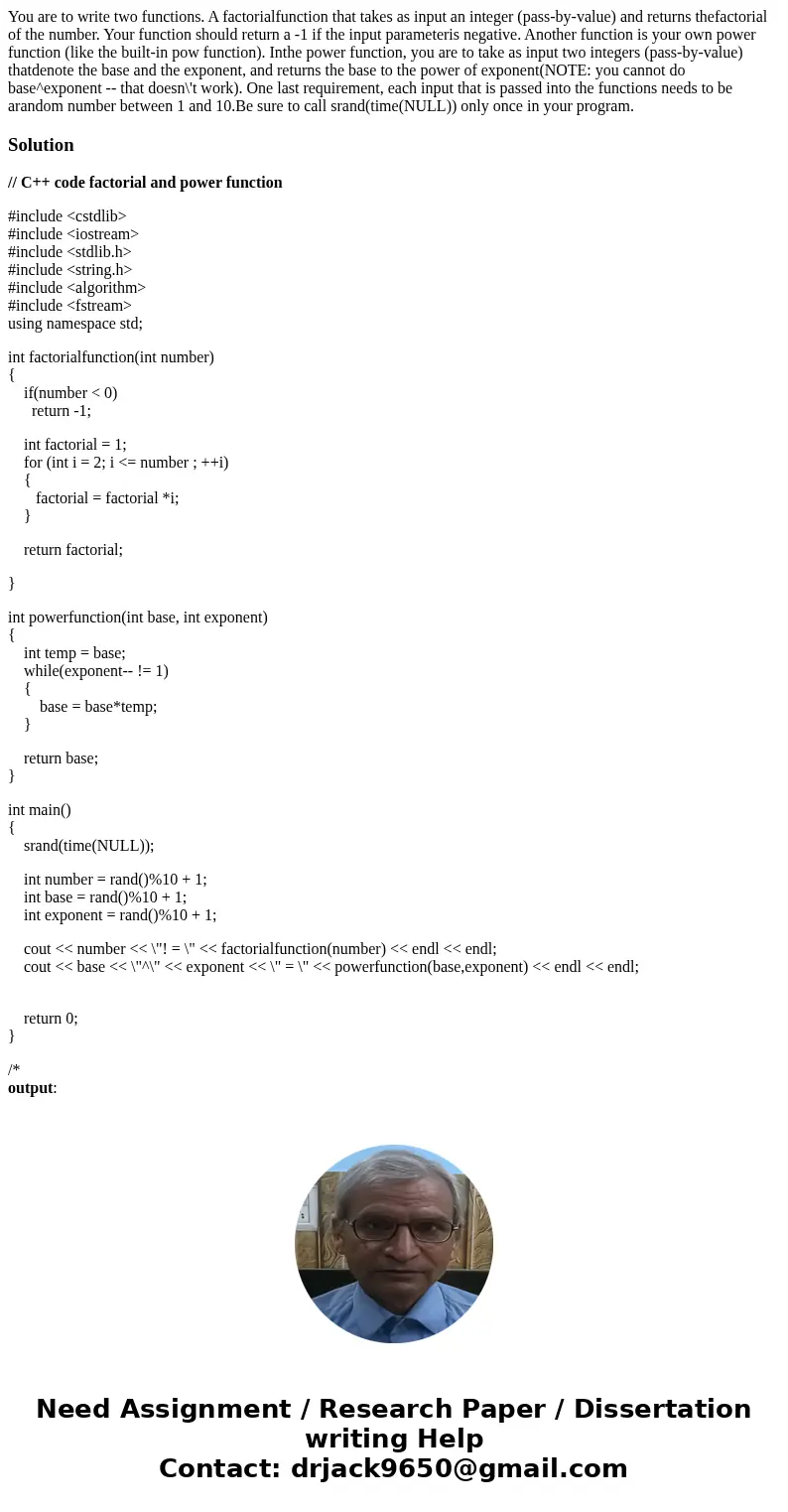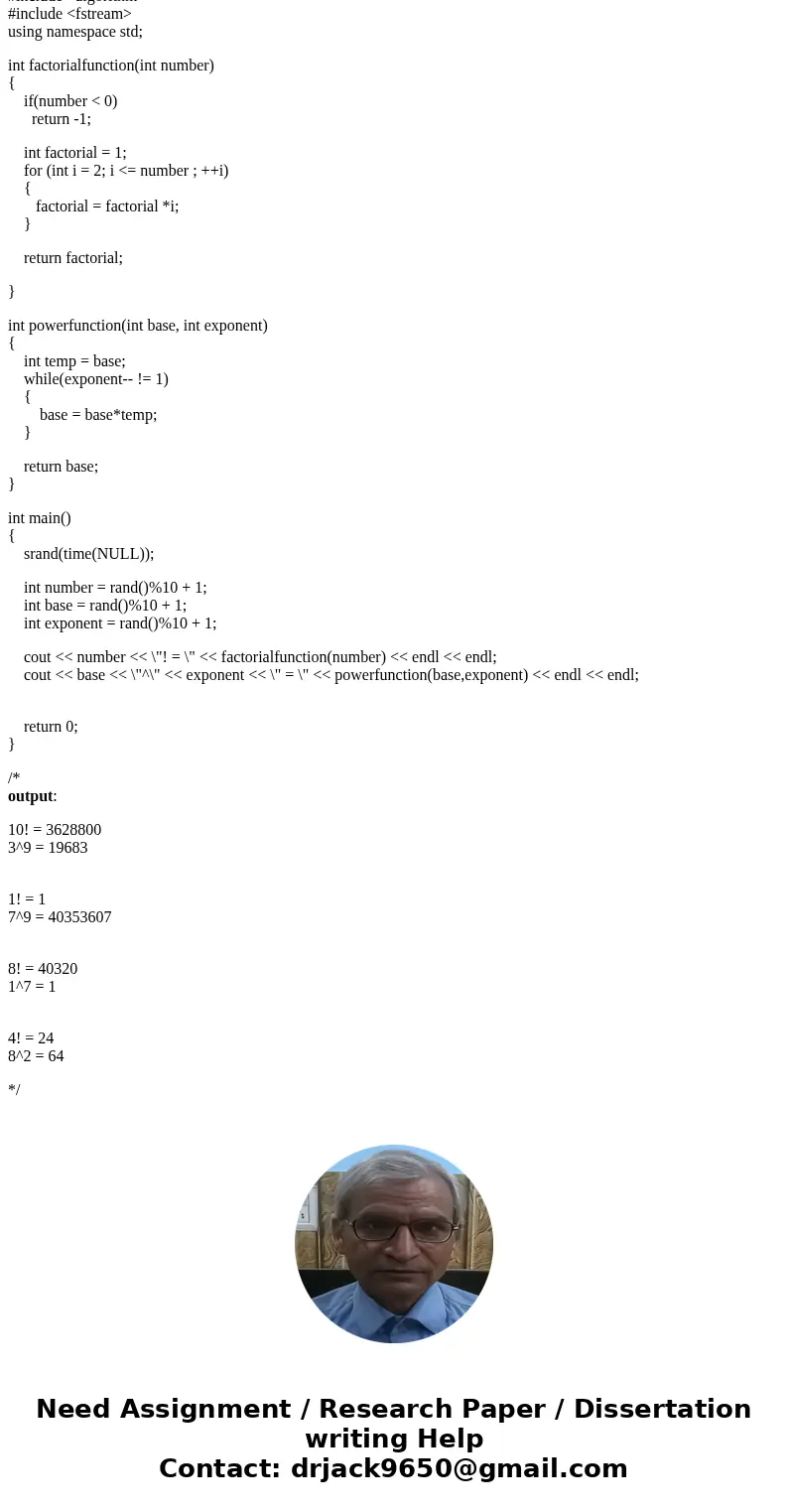You are to write two functions A factorialfunction that take
You are to write two functions. A factorialfunction that takes as input an integer (pass-by-value) and returns thefactorial of the number. Your function should return a -1 if the input parameteris negative. Another function is your own power function (like the built-in pow function). Inthe power function, you are to take as input two integers (pass-by-value) thatdenote the base and the exponent, and returns the base to the power of exponent(NOTE: you cannot do base^exponent -- that doesn\'t work). One last requirement, each input that is passed into the functions needs to be arandom number between 1 and 10.Be sure to call srand(time(NULL)) only once in your program.
Solution
// C++ code factorial and power function
#include <cstdlib>
#include <iostream>
#include <stdlib.h>
#include <string.h>
#include <algorithm>
#include <fstream>
using namespace std;
int factorialfunction(int number)
{
if(number < 0)
return -1;
int factorial = 1;
for (int i = 2; i <= number ; ++i)
{
factorial = factorial *i;
}
return factorial;
}
int powerfunction(int base, int exponent)
{
int temp = base;
while(exponent-- != 1)
{
base = base*temp;
}
return base;
}
int main()
{
srand(time(NULL));
int number = rand()%10 + 1;
int base = rand()%10 + 1;
int exponent = rand()%10 + 1;
cout << number << \"! = \" << factorialfunction(number) << endl << endl;
cout << base << \"^\" << exponent << \" = \" << powerfunction(base,exponent) << endl << endl;
return 0;
}
/*
output:
10! = 3628800
3^9 = 19683
1! = 1
7^9 = 40353607
8! = 40320
1^7 = 1
4! = 24
8^2 = 64
*/


 Homework Sourse
Homework Sourse